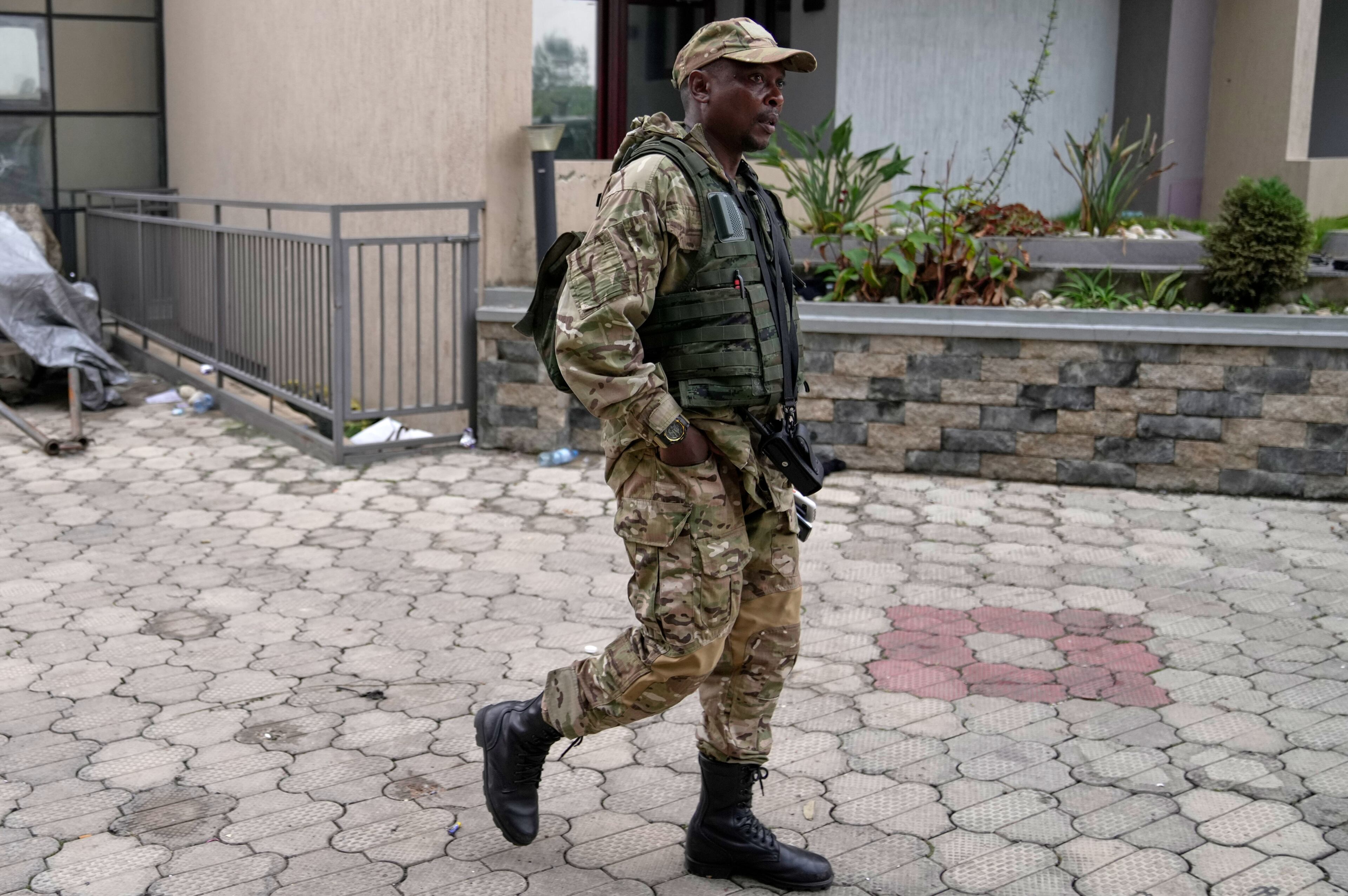BREAKING: Navy captain fired for his protests over COVID-19 conditions diagnosed with virus
The Navy captain fired just days ago for making a public plea for help on his coronavirus-stricken aircraft has now been diagnosed with COVID-19, according to his family.
The New York Times first reported that Capt. Brett E. Crozier, the Navy captain who was removed from command of the U.S.S. Theodore Roosevelt, has tested positive for COVID-19.
"He has told us he is OK," his mother, Gina Crozier, a Santa Rosa child and family counselor, told The Press Democrat.
Crozier, who has been praised for his actions to protect his crew, is among more than 100 sailors from the nuclear-powered aircraft carrier Theodore Roosevelt who've tested positive for the viral infection behind the global pandemic, according to The New York Times.
The commander reportedly began exhibiting symptoms before he was removed from the warship on Thursday at a U.S. naval base on Guam, The New York Times reported, citing two unnamed Naval Academy classmates close to Crozier and his family.
A Navy spokesman declined to comment on Crozier’s COVID status.
Crozier was fired following a leak to The San Francisco Chronicle of a letter he had emailed to Navy leaders that detailed the failures on the service’s account to ensure that his sailors and the carrier were quickly and properly disinfected as the virus spread through the ship.
Secretary of Defense Mark T. Esper said Sunday on CNN’s “State of the Union” that there were 155 confirmed cases of COVID-19 among sailors aboard the aircraft carrier, and that more than half of the ship had been tested. So far, there have been no hospitalizations.
The nearly 1,100-foot-long Nimitz-class carrier is now docked at the mouth of Apra Harbor on Guam, a Pacific U.S. island territory.
“There is an investigation ongoing,” Esper said. “All the services at times relieve commanders without the benefit of an investigation up front because they’ve lost confidence in them. It’s certainly not unique to the Navy.”
Navy Sec. Thomas Modly said Thursday that Crozier was relieved of his duties because he “demonstrated extremely poor judgment” by sending the urgent-but-unclassified memo to his superiors that was later leaked to the Chronicle.
Modly also took sole responsibility for the decision to fire Crozier and emphasized that he was not under any pressure from the White House.
“I did not come to this decision lightly,” Modly added. “I have no doubt in my mind that Captain Crozier did what he thought was in the best interests of the safety and well-being of his crew.”
What did the letter say?
Crozier wrote a four-page letter to his superiors in Washington on Monday about the dire situation unfolding aboard the Roosevelt. In the communication, Crozier criticized Navy leadership for failing to provide the proper resources to combat an outbreak. “We are not at war,” Crozier wrote.
“Sailors do not need to die. If we do not act now, we are failing to properly take care of our most trusted asset — our sailors.”


